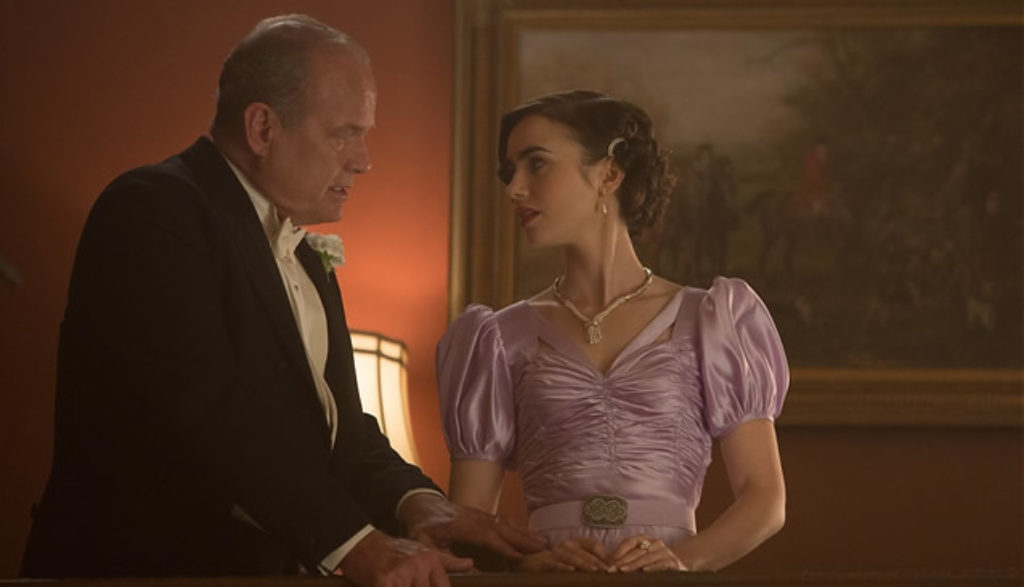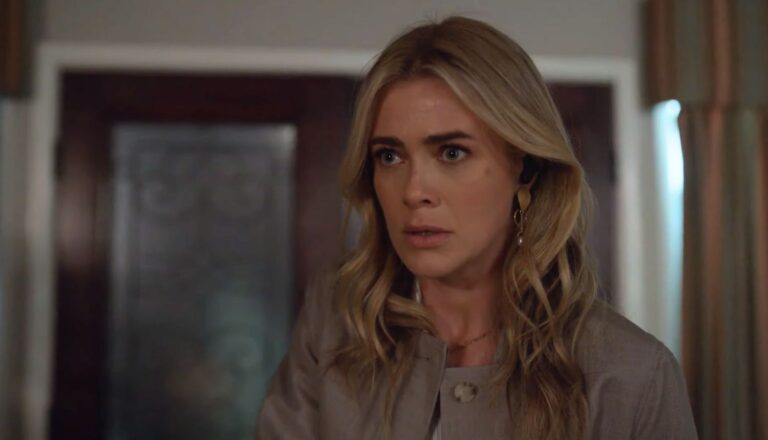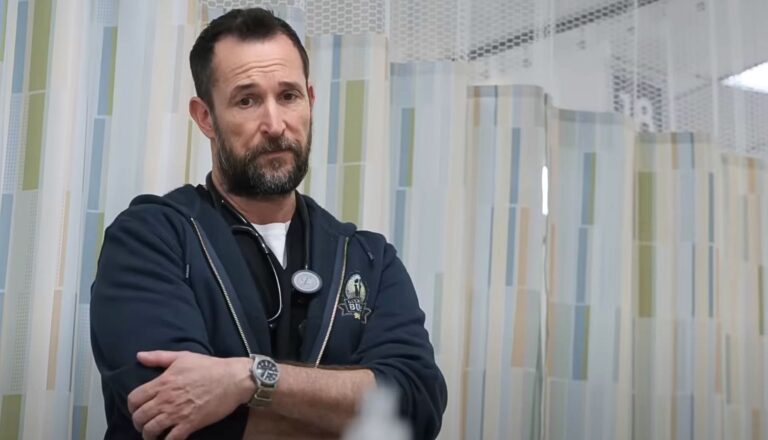
The Night Manager
Does it take a thief to catch a thief? Does it take lots of bad content to make a good TV show?

Pat Brady, owner of Hollywood’s struggling Brady American Studios, turns to his daughter, Celia, who’s just dipping her toes into the movie lot’s inner workings.
“Please,” Pat pleads. “Please. Find another business.”
“There is no other business,” she says.
Pat sighs. “I know,” he says.
In Hollywood, there is indeed no other business—not any business worth discussing in The Last Tycoon, that is. Amazon’s newest original show takes us behind the Golden Age of the silver screen and examines the iron, granite and flesh on which it’s all built.
Monroe Stahr—Brady American’s young, dashing wunderkind producer—abides at the heart of Tycoon. “Ordinary is the enemy,” he says. And indeed Monroe has a knack for making his pictures extraordinary: He knows just the right stars to cast, the right writers to fix the script, the right sweeteners to offer rival studio heads for a favor or two. He’s a little like Mad Men’s Don Draper. But Monroe deals in celluloid instead of glossy mags, a golden boy tanning under the golden sun.
But polished perfection does not a great movie (or TV show) make. And behind Monroe’s charming façade lurks plenty of dramatic tension.
There are scripts to fix and stars to fire, naturally; that never stops. Monroe and Mr. Brady work closely with each other, but they clash mightily, too—especially when Pat tries to prove his mettle as a producer and messes with Monroe’s polished gems. (It might not help that Monroe’s been known to sleep with the boss’s wife.) Monroe’s latest love interest, Kathleen Moore, is a movie star in the making. But, frankly, she’d rather just be a waitress. The studio’s hard up for cash, too—and the only folks willing to loan Brady American Studios the moolah to make movies just happen to live in Germany. Nazi Germany.
Oh, and then there’s Celia, prancing around the studio, preening for Monroe and making all sorts of trouble—not to mention making friends with some would-be unionists who just might speed the studio’s sinking.
The Last Tycoon is Amazon’s latest bid to keep up with Netflix in the world of streaming prestige TV. And on paper, at least, it doesn’t get more prestigious than F. Scott Fitzgerald. The Last Tycoon was Fitzgerald’s last novel, and it was unfinished when the writer died at age 44. To that literary pedigree, Amazon added a troupe of well-known actors, including Lily Collins (Celia), Matt Bomer (Monroe) and multi-Emmy winner Kelsey Grammer (Pat).
‘Course, when you’re basing a whole television series on an unfinished work—particularly one that Amazon would like to presumably milk for several seasons—that leaves a lot of room for, ahem, embellishment. And Tycoon’s makers don’t hesitate.
I haven’t read Fitzgerald’s Tycoon, but I am familiar with the author and the time period in which he wrote. It seems unlikely that he would’ve written about a lesbian threesome, as we see in the Amazon show filled with explicit nudity and sexual activity. The worlds that Fitzgerald wrote about were certainly not free of illicit love, but I question they would’ve been stated as frankly, or filmed as explicitly, as they are here. As for the language … well, again, it seems unlikely that F. Scott would’ve unleashed a barrage of f- and s- and even c-words at his readers.
In our current climate of salty, sultry television, everything is relative, of course. Aesthetically, The Last Tycoon is not as good as some shows. Content-wise, it’s not the worst.
That said, I don’t think F. Scott Fitzgerald would have approved of it.
(Editor’s Note: Plugged In is rarely able to watch every episode of a given series for review. As such, there’s always a chance that you might see a problem that we didn’t. If you notice content that you feel should be included in our review, send us an email at letters@pluggedin.com, or contact us via Facebook or Instagram, and be sure to let us know the episode number, title and season so that we can check it out.)
Pat is proud that his studio’s latest release, The Belles of Boston, will be his own solo work as producer, un-aided by Monroe’s handiwork. But when the film screens internally, it’s painfully obvious that the thing will need a total overhaul. Meanwhile, Monroe woos Kathleen while trying to end his relationship with Rose, and Pat’s daughter Celia attends a would-be union rally with some of the studio’s lesser-paid lackeys.
The rally, we hear, was born from violence: The main speaker says some goons tried to “rearrange” his face for daring to mention the word union. (We see plenty of bumps and bruises on him.) It ends in violence, too, with several people bashing windows and headlights out of attendees’ cars. One vandal doesn’t get away in time, and a scriptwriter pummels him with his fists before kicking him in the face. The writer injures his hand in the melee, and he’s later seen with his arm in a sling.
Rose comes to visit Monroe late one night, obviously looking to sleep with the producer. Monroe tries to reject her; Rose then asks Monroe if he’d like to do something kinkier. We hear references to a particular sex act. There’s a visual allusion to the possibility of oral sex (which Monroe rejects). Elsewhere, Monroe barges into Kathleen’s apartment (where her roommate is strutting around in revealing lingerie) and kisses Kathleen passionately. Rival studio head Louis B. Mayer sits in on some studio screen tests, where women—covered only in sumptuous fur blankets—bat their eyes, purse their lips and show their physical assets for the camera. (Both women reveal bare shoulders, and one sports a great deal of cleavage.) Pat tells Mayer that he had sex with one of Mayer’s actresses repeatedly in his office, causing Mayer to sever his ties with the woman—and allowing Pat to sign her. (“If I actually slept with her, I don’t know if I could’ve pulled it off,” he admits.)
We hear the c-word once and the f-word twice. Characters also say “a–,” “b–tard,” “d–n,” “h—,” “pr–k” and use an extremely crude slang term for oral sex. God’s name is misused four times, twice with the word “d–n,” and Jesus’ name is abused three times.

Paul Asay has been part of the Plugged In staff since 2007, watching and reviewing roughly 15 quintillion movies and television shows. He’s written for a number of other publications, too, including Time, The Washington Post and Christianity Today. The author of several books, Paul loves to find spirituality in unexpected places, including popular entertainment, and he loves all things superhero. His vices include James Bond films, Mountain Dew and terrible B-grade movies. He’s married, has two children and a neurotic dog, runs marathons on occasion and hopes to someday own his own tuxedo. Feel free to follow him on Twitter @AsayPaul.

Does it take a thief to catch a thief? Does it take lots of bad content to make a good TV show?

The Hunting Party is far from the most gruesome drama on television, but its disturbingly inventive ways of killing may make viewers a bit queasy.

Max’s hospital drama ‘The Pitt’ strives to be medically accurate. While a noble goal, this show comes with a whole lot of content, too.

Netflix’s ‘Seven Dials’ (and the Agatha Christie book it’s based on) is filled with peril and suspicion. And more death is coming.